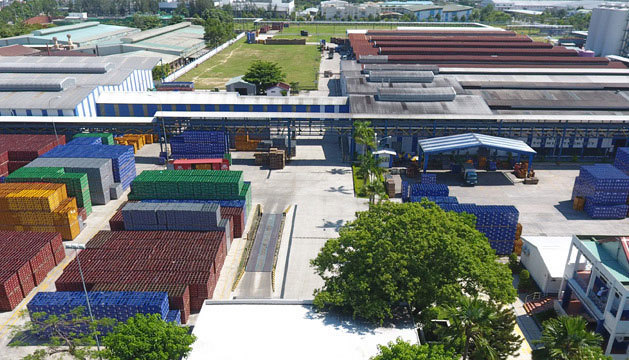While sustainable development is more popular than ever, only a few large Vietnamese businesses show interest, while most businesses remain indifferent.

Nguyen Dinh Cung, former director of the Central Institute of Economic Management (CIEM), said it is costly to invest in sustainable development and requires many changes in business culture.
However, he said that sustainable development brings big benefits to businesses.
A survey by VCCI found that businesses using a sustainable development index have better business results and higher productivity. Sixty percent of surveyed businesses agreed.
VCCI chair Vu Tien Loc noted that businesses using a corporate governance model in accordance with sustainable development have higher resiliency. They can stand firmly under difficult and unfavorable conditions.
URC Vietnam enterprise follows sustainable development. Its representative said that in all production activities, the principles of minimizing, reusing and recycling are followed to improve the performance of water and energy use, and minimize waste.
All the plants of URC in Vietnam use reverse osmosis filtration systems and reuse water to optimize water input and limit wastewater.
This enterprise is also pioneering clean energy such as CNG and biomass to protect the environment.
Regarding waste management, the company minimizes landfills by outsourcing waste treatment to contractors. The waste can be recycled to make pavement bricks and fertilizer.
According to Heineken Vietnam, which also follows the sustainable development model, in 2014, when it began implementing the model, the water source protection and efforts to mitigate CO emissions helped reduce 5.9 percent of water consumption and 7.1 percent of energy consumption compared with 2013.
All breweries of Heineken system use renewable energy in production, minimizing carbon emissions. At least 99 percent of waste and by-products are recycled.
As Heineken has begun using biomass to brew beer, in 2019 the company collected 40,000 tons of rice husks and agricultural byproducts, bringing turnover of VND52.6 billion to local residents.
A representative of an international cosmetics group said the group has 20 brands developed in accordance with sustainable development criteria. They grow 50 percent faster than the remaining brands.
In 2016, Vietnam ranked 88th in sustainable development, but the country has jumped to 49th.
Tran Thuy

Mekong Delta to adopt 'integrated regional plan' on sustainable development
An integrated regional plan on improving infrastructure to attract investment and tackle climate change will be key to “inclusive growth and sustainable development” in the Mekong Delta region,

Vietnam’s strategy for sustainable development of marine economy
On October 22, 2018, Party General Secretary and State President Nguyen Phu Trong signed a resolution on the strategy for the sustainable development of Vietnam’s marine economy to 2030 and vision to 2045, known as Resolution No 36.